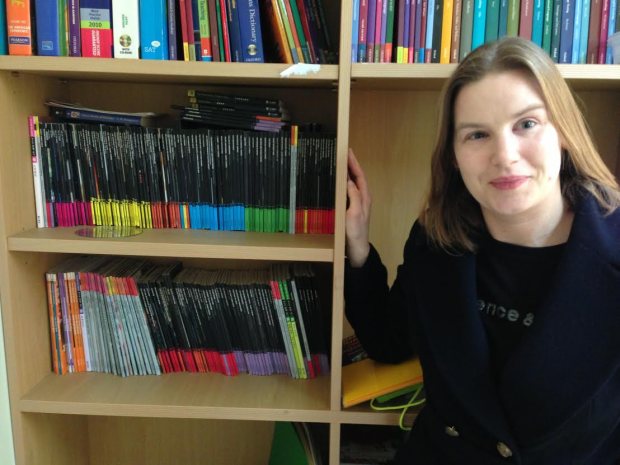
Gwangju-Jeonnam Chapter January Meeting
Time: Saturday, January 11, 2014, 1:45 p.m.
Place: Chosun University (Gwangju), Main Building (본관), Room 4211.
Schedule
1:45 pm: Sign-in and Meet-and-Greet
(Admission is free. Future membership is welcomed.)
2:15-3:45 pm: FEATURED PRESENTATION
Using Higher-Order Thinking Tasks in the Language Classroom
Jessica Magnusson (Gwangju National University of Education)
3:00-3:15 pm: Refreshment Break
3:45: Swap-Shop Session (Extended)
Everyone is invited to Share one of your Teaching Ideas, Classroom Activities, and ELT Games, Books, etc.
(This month, Beginning-of-School-Year ideas/activities are especially welcome.)
4:30 pm: Announcements / Drawing for Door Prizes / Closing
(Informal after-meeting dinner for those interested. Probably at The First Alleyway.)
Presentation Abstract
Using Higher-Order Thinking Tasks in the Language Classroom
When working with young learners in English Conversation classes, I found that they were having trouble when I asked open-ended questions but answered with ease when the questions had either a right or wrong answer. In working with university students, I’ve often noticed that many of them don’t regularly back up their opinions and assumptions with supporting evidence during a debate or discussion. Do my students lack higher-order thinking skills or the ability to develop these skills? I believe that they do not lack these skills. Traditionally, the thought processes of students have not been valued in the classroom, so many find these tasks unfamiliar. With time and encouragement students become more able to express their thoughts and thought processes. I have often been surprised, amazed, fascinated, and moved by the experience, reflection, and ideas that students bring into the classroom when given the opportunity.
Implementing a higher-order thinking task in the classroom can be as simple as giving open-ended discussion questions to students, such as “What is one of your most significant childhood memories? Why is it significant?” Besides discussion questions, there are many other ways to implement higher-order thinking tasks.
Higher-order thinking tasks are tasks that involve increased mental activity. Why is higher-order thinking beneficial to English language learners? For one thing, these tasks usually generate more language output than tasks that involve less mental power. Also, much research has shown that deep processing leads to increased retention of material.
For the purposes of this presentation, we will deal with higher-order thinking as a set of skills involving critical, logical, reflective, metacognitive, and creative thinking. Under each of these categories, we can find various sub-skills, including categorizing (logical), evaluating (critical), and brainstorming (creative). Rote memorization of a list of vocabulary words does not usually require higher-order thinking. However, using the words from the list to write an original story would show creative thinking skills. Putting those words into different categories would show logical thinking skills.
This presentation will explore each of these areas in depth and get participants involved in activities that allow learners to demonstrate and explore critical, logical, reflective, metacognitive, and creative thinking skills. Higher-order thinking tasks for young learners to adults at different levels of language proficiency will be discussed and explored.
The purpose of using tasks that involve higher order thinking skills in the language classroom is not to tell students what to think or how to think. Rather, it is to give students an opportunity to experience different ways of thinking so that they can make informed choices. This presentation will enable you to more effectively incorporate higher-order thinking into your English lesson planning.
Presenter Biographical Sketch
Jessica Magnusson has been teaching English in Korea since 2006. She is dedicated to life-long learning and professional development, and has worked as an EFL instructor and teacher trainer in Korea. Currently she teaches EFL conversation courses, teacher training courses, and special programs at Gwangju National University of Education. Prior to coming to Korea, she worked as an EFL instructor for four years in Gwangdong Province, China. She has earned a Masters in TESOL from the School for International Training (SIT) in Brattleboro, Vermont. Her main areas of interest include getting EFL learners actively involved in discussions and story-based instruction.
Jessica Magnusson



